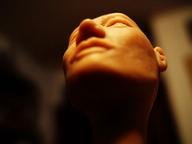Quiz Answer Key and Fun Facts
1. When did the Enlightenment take place?
2. Match the Enlightenment thinkers with their works. Which of these 'strings' is correct?
3. What cause did Mary Wollstonecraft fight for most ardently?
4. Which philosopher said that life without a strong government would be "nasty, brutish, and short"?
5. Adam Smith argued against laissez faire in his major work "The Wealth of Nations".
6. "Life, liberty, and the pursuit of happiness". Which Enlightenment philosopher had the greatest impact on this phrase from the Declaration of Independence, by Thomas Jefferson?
7. Which idea, taken from Montesquieu, became an integral part of the American system of government?
8. Who was the most popular American philosopher? Hints: he traveled around Europe and was very popular there. He was sixty-eight years old at the time of the First Continental Congress.
9. Which Enlightenment philosopher was unique in that he said that the individual should subordinate to the good of the community as a whole?
10. Who made this famous remark? "Out of the crooked timber of humanity no straight thing can ever be made."
11. Which of these phrases opens Rousseau's book, "The Social Contract"?
12. Which group focused on economic reform during the Enlightenment?
13. Which of the following did NOT influence the Enlightenment?
14. Who was the main editor of the Encyclopédie?
15. Who was the writer of this phrase, which explains what the Enlightenment was all about?
"Superstition sets the whole world in flames; philosophy quenches them."
Source: Author
broadwaygal
This quiz was reviewed by FunTrivia editor
bloomsby before going online.
Any errors found in FunTrivia content are routinely corrected through our feedback system.

